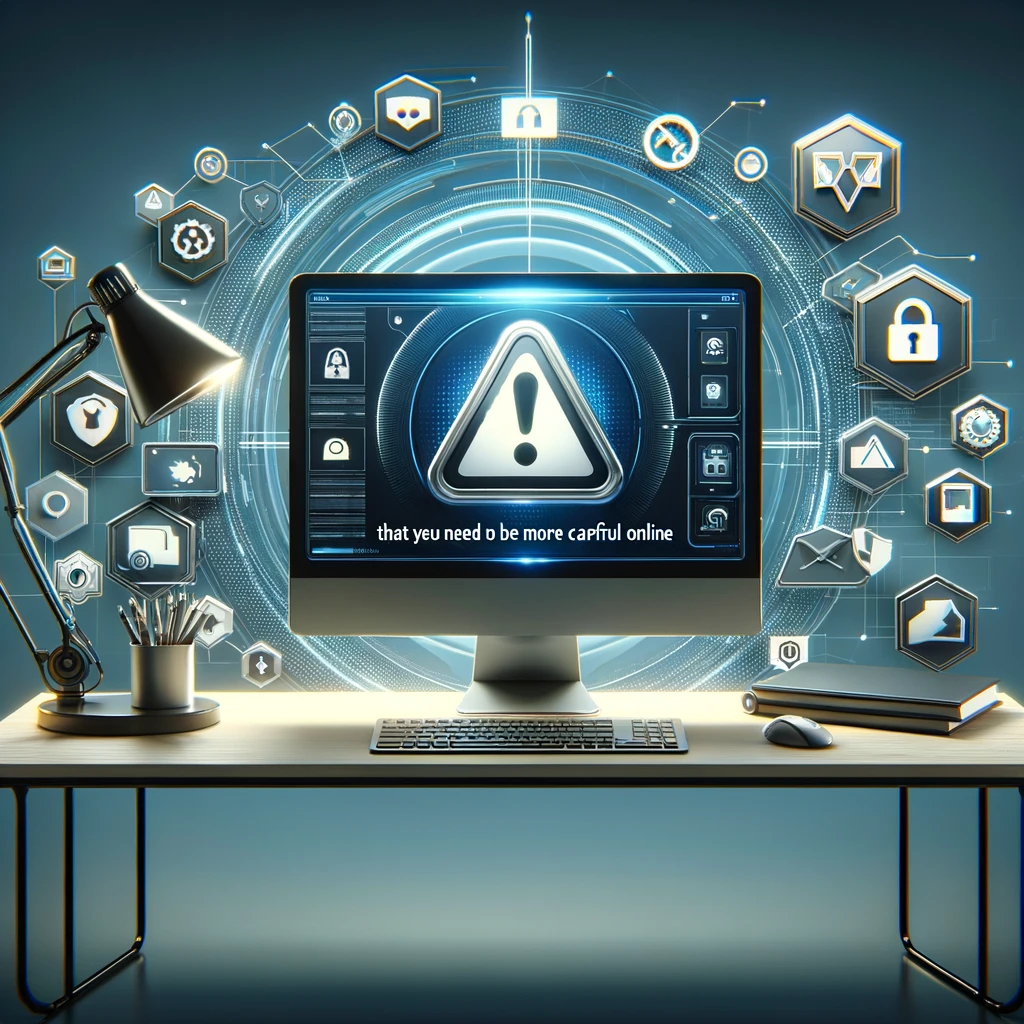Introduction
We do a plethora of things online, including banking, watching movies and listening to music, chatting with friends, shopping, and ordering food. It's essential to be cognizant of the pros and cons of always being connected and what to do if things go wrong in this hyper-connected society.
In this article, we'll delve deeper into tell-tale signs that indicate that you need to be more cautious while using the internet. By being aware of these signs, you can proactively safeguard your personal information, privacy, and security online.
1. Using Public Wi-Fi
Most people use public Wi-Fi frequently, which is convenient but poses significant cybersecurity threats. Therefore, avoid using public Wi-Fi networks and use your phone's built-in hotspot feature to connect all your devices to the Internet. But there are situations when using a personal hotspot isn't an option—like when you're underground or some other place where cellular signals can't reach.
Avoid doing financial transactions, online shopping, or accessing personal health information using public Wi-Fi. If you're stuck using public Wi-Fi, a virtual private network (VPN) service offers several security advantages that may be worth considering.
Therefore, learning how to use a VPN can help your device establish an encrypted connection with the Internet. This ensures that malicious actors cannot access your online activities.
Additionally, turning off Wi-Fi will stop your device from joining networks with the same name as the ones you've already connected to. Criminals can set up Wi-Fi access points that sound like well-known public networks in an attempt to trick you into connecting to malicious networks. To protect your data, disable AutoConnect on all public Wi-Fi networks.
2. Reusing Passwords
A popular news website in 2019 headlined an article asking, "How hackable is your password?"
Everyone should think about how secure their passwords are whenever they set up a password. According to the studies, the top ten most commonly used passwords include 123456, admin, and 12345678.
If you use such an obvious password, you should immediately change the weaker ones with secure passwords. For hackers, getting into accounts protected with weak passwords only takes seconds. But how do they do it? Well, they can guess it, which is one way. That may sound weird, but hackers can use automated systems to "brute force" passwords if your email address is publicly available.
So, let's say you use fifty different apps. You likely use one of your two preferred passwords for half of your accounts. If hackers get access to one of the websites where you use that password, they can also steal your login credentials for all of your other accounts. You may change the password for the compromised account, but you should also consider doing the same for any other accounts that use the same password.
Password managers are helpful in this situation. A password manager can save you time and effort since it creates different, complicated, and nearly impossible-to-crack passwords for each account. A single master password will give you access to your accounts instead.
3. Ignoring Software Updates
When trying to protect your data, never overlook your network security. Securing your network maintains the integrity of your A newly constructed elevated water tank in Lucknow, Ontario, Canada, recently overflowed due to out-of-date software. Many people noticed when water started to pour out of the top.
Your gadgets are vulnerable to a similar fate if you disregard software upgrades. One easy way to protect your digital devices from hackers is to update its software regularly. Application and operating system updates fix security holes and improve stability.
If you ignore these updates, your device could be left vulnerable to possible dangers. Keep your defenses up-to-date by enabling automatic updates wherever possible.
Also, be aware of technology that is too old or has become obsolete. Zombie tech refers to technologies that continue to function even after their original lifespan has passed. Their danger lies in the potential for security breaches and the operational inefficiency they cause. If security patches and upgrades are not reinforced, this software becomes a breeding ground for cyber threats—a virtual "back door" for cybercriminals to access your systems.
A well-planned strategy for technological renewal is necessary to lessen the effect of zombie tech. The best course of action for users is to check their systems for any signs of performance issues, such as out-of-date software or hardware. An efficient way to eliminate these digital remains and switch to modern technology is to implement a system of regular upgrades and updates.
Conclusion
In 2024, hackers will extend beyond unsanitized data inputs and login forms. Application programming interfaces (APIs) help you Information confidentiality, integrity, and availability affect all of us.
Even if you're not tech-savvy, it doesn't mean the data collected and shared by the Internet and other modern marvels won't impact you. To protect yourself online, use a password manager to generate strong, unique passwords, enable automatic updates, and use a VPN when connecting to public Wi-Fi.
